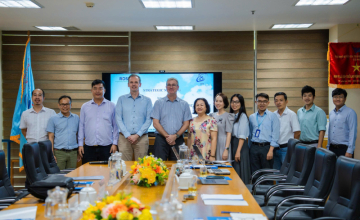Vietnam has reported cases of A(H5N1) avian influenza in humans after several years without recording any. Currently, there is no evidence of human-to-human transmission of A(H5N1) influenza. A(H5N1) influenza has a high mortality rate, with nearly 50% of cases resulting in death. With the potential risk of transmission from poultry to humans, it is essential to raise awareness and proactively implement disease prevention measures.
The recent case of A(H5N1) influenza in Khanh Hoa is the second reported case since 2014 after several years without human cases in Vietnam. Accumulated data from 2003 to date shows that Vietnam has recorded 128 cases of A(H5N1) influenza in humans, with 65 deaths (nearly 51%).
Globally, there have been several outbreaks of avian influenza in animals, predominantly caused by the A(H5N1) strain, in all regions since late 2023. Cambodia continues to report cases of A(H5N1) influenza in humans since late 2023.
In Vietnam, according to information from the Department of Animal Health - Ministry of Agriculture and Rural Development, outbreaks of avian influenza are still sporadically reported in poultry flocks in many localities. From the beginning of 2024 until now, there have been 06 outbreaks of avian influenza in 06 provinces and cities, including Bac Ninh, Ninh Binh, Khanh Hoa, Ba Ria - Vung Tau, Long An, and Tien Giang.
Moreover, the current seasonal transition period and unusual weather conditions provide favorable conditions for the development of disease agents. The Ministry of Health assesses that there is a potential risk of avian influenza transmission from poultry to humans in the coming period.
There is currently no specific treatment for avian influenza in humans, nor is there a vaccine for disease prevention. There is no evidence of human-to-human transmission of A(H5N1) influenza. A(H5N1) influenza is highly pathogenic, and infected individuals often experience severe progression and a high mortality rate of nearly 50%. Disease prevention, especially preventing transmission from poultry to humans, is crucial.
To proactively prevent and control A(H5N1) influenza transmission from poultry to humans, it is necessary to implement the following measures effectively:
1. Avoid consuming poultry and poultry products that are sick, dead, or of unknown origin.
2. Ensure all food is thoroughly cooked, and practice hand hygiene with soap before eating.
3. Avoid slaughtering, transporting, buying, or selling poultry and poultry products of unknown origin.
4. When detecting sick or dead poultry, do not slaughter or use them; instead, immediately report to local authorities and veterinary units.
5. Limit contact with, slaughtering, or consuming wild animals, especially birds.
6. Seek medical attention immediately at healthcare facilities if experiencing flu-like symptoms related to poultry exposure.
Source: Department of Preventive Medicine, Ministry of Health
HY - Ho Chi Minh City Center for Disease Control and Prevention (excerpt)
For more details, visit: https://ctsv.uit.edu.vn/bai-viet/tiem-nguy-co-lay-nhiem-cum-gia-cam-sang-nguoi
Ha Bang - Media Collaborator, University of Information Technology
Nhat Hien - Translation Collaborator, University of Information Technology







